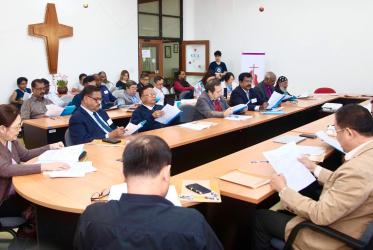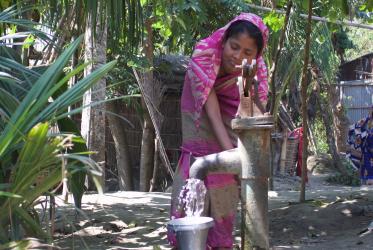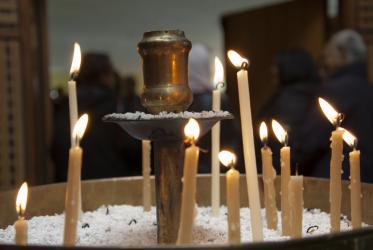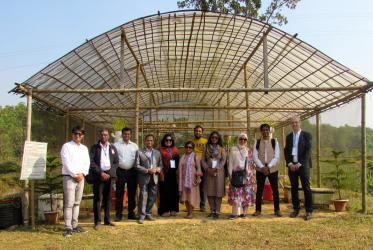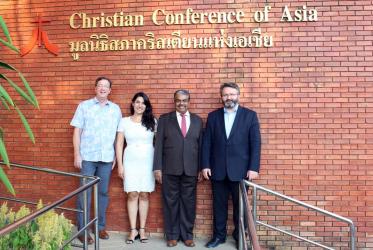Displaying 41 - 60 of 177
Eco-School promotes blue communities, green churches
19 November 2019
The cry of the Papuans in Indonesia
14 November 2019
WCC Eco-School begins in Thailand
07 November 2019
“Economy of life” lifted up at special school in Indonesia
22 August 2019
WCC represented at G20 Interfaith forum in Tokyo
13 June 2019
WCC condemns massacre of farmers in Philippines
12 April 2019
Workshop in Bangladesh links climate, economic justice
07 February 2019
Conciliar Unity: Whither Vision and Direction?
14 December 2018
